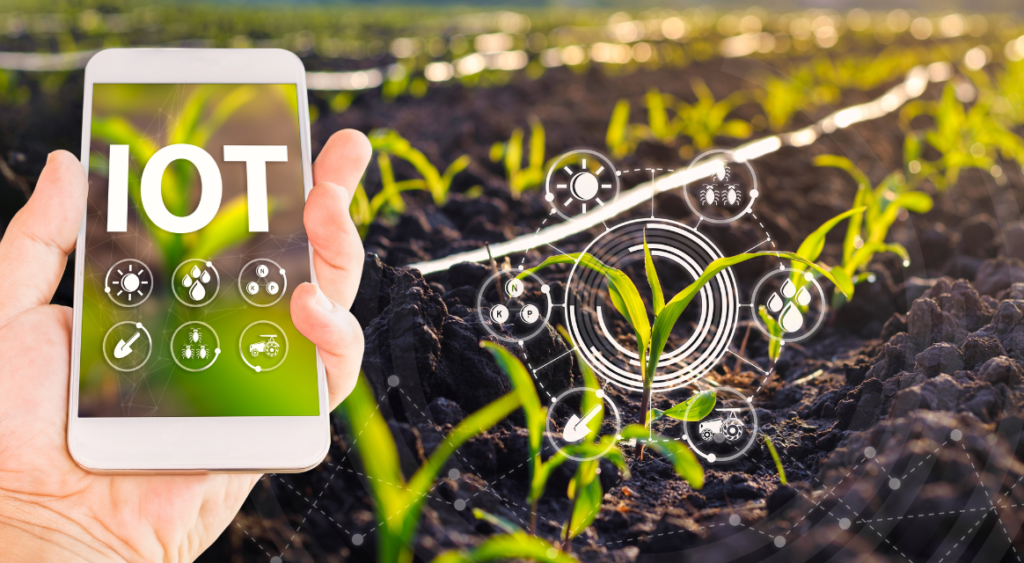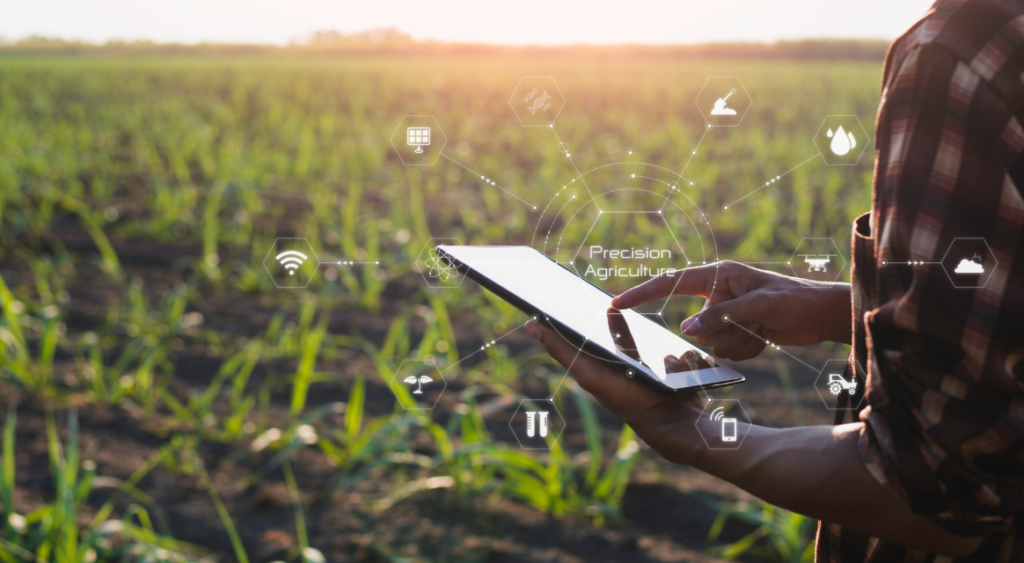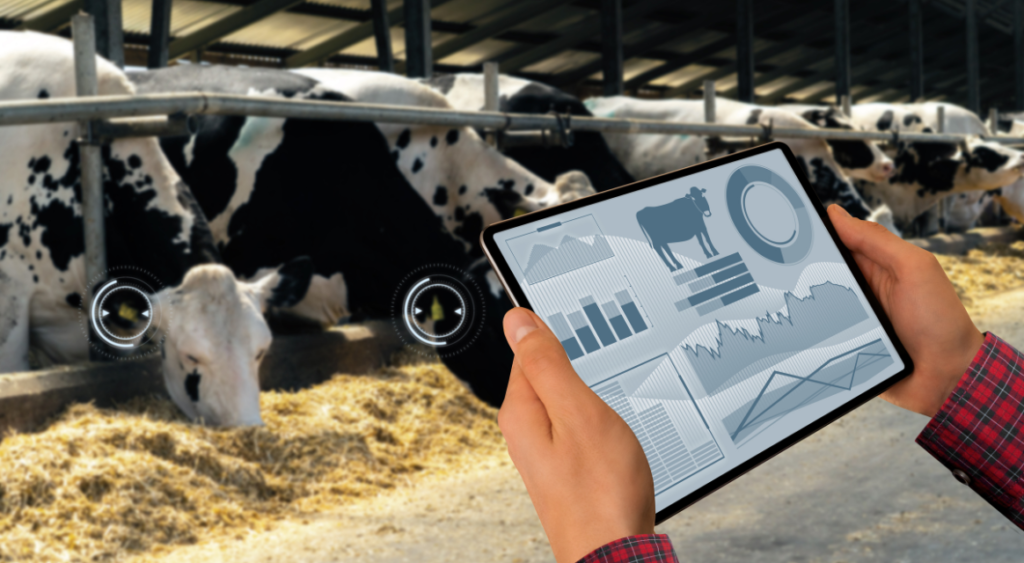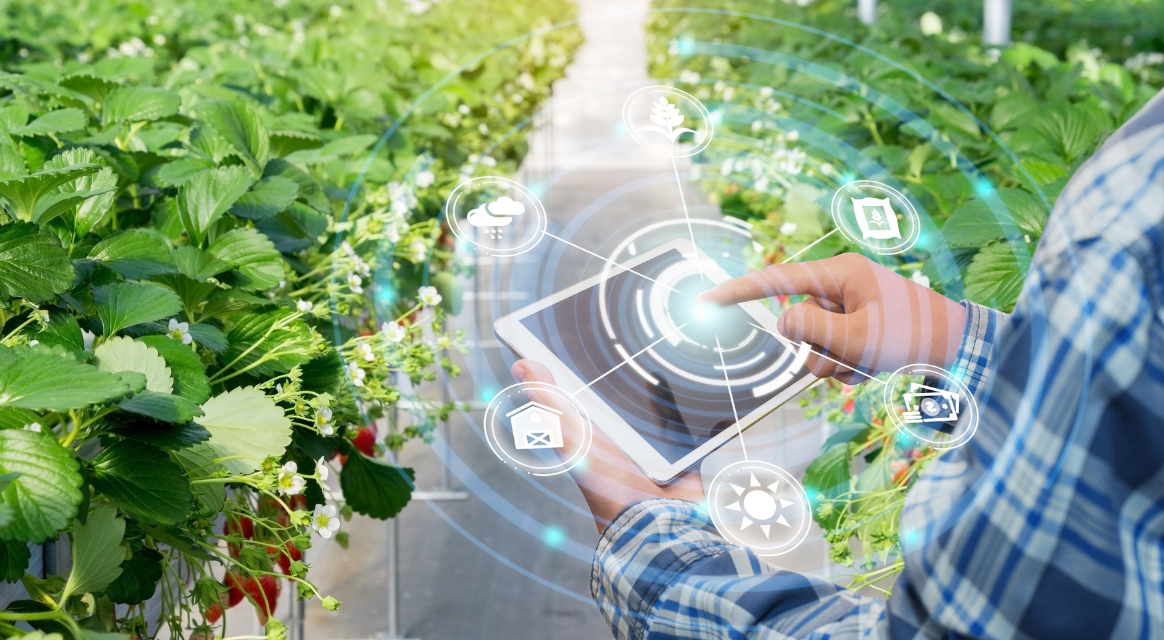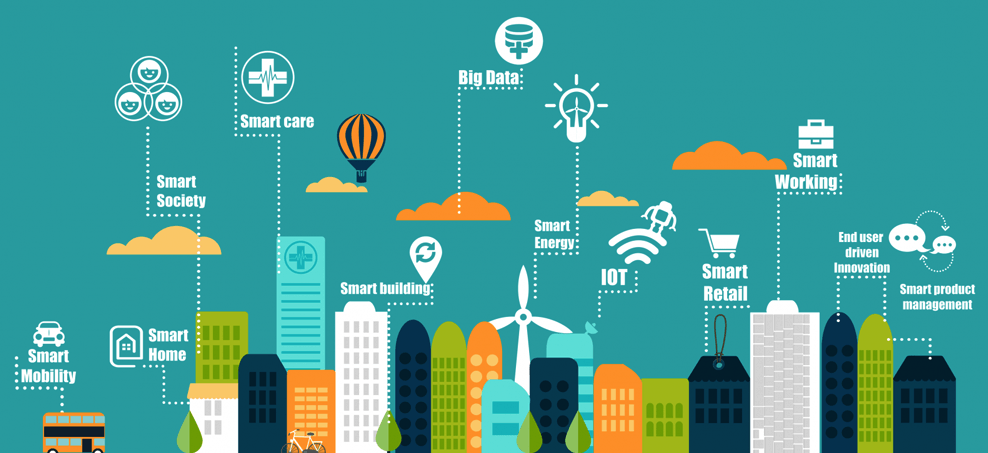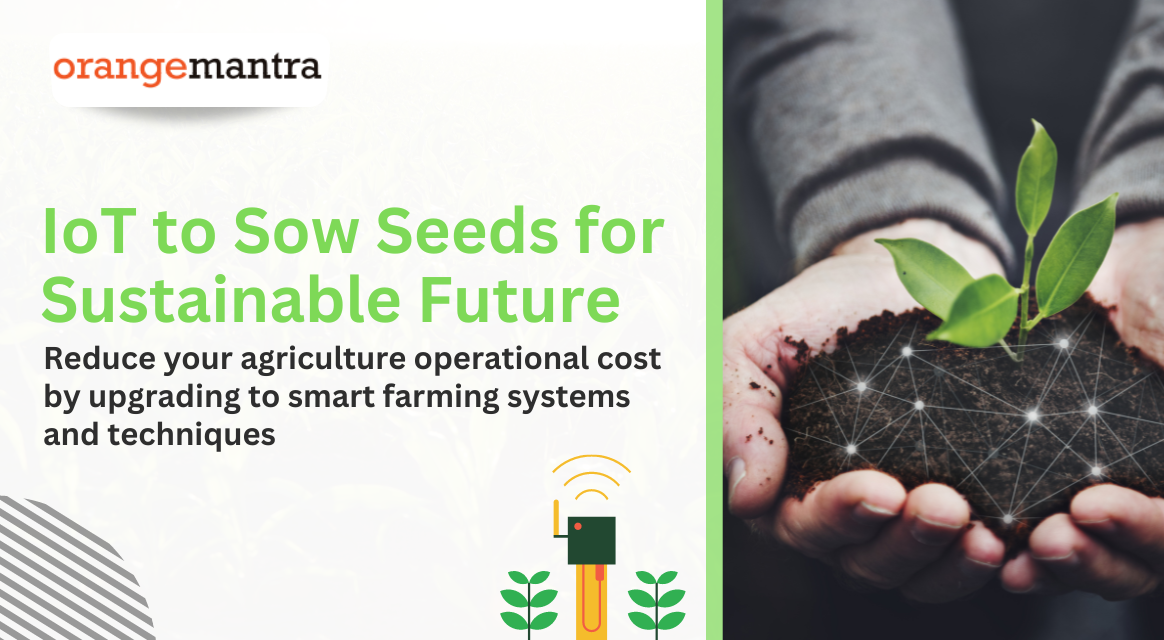
Here’s what you will learn:
Even though farming is oldest professions, its importance is still relevant. More so than ever amid looming food shortages across the world. Experts say global sustainable development will become more reliable on farming in the next few years.
Consider the stats of global population growth and think of the post-COVID era. You would quickly realize that agricultural businesses and other stakeholders face growing challenges. But the good part is that innovators and tech companies are introducing sustainable solutions to deal with these roadblocks. The key to success is the use of smart farming technologies. Let’s get in detail and why agribusinesses should adopt next-gen farming solutions.
Table of Contents
What’s inside this blog?
- Introduction to smart farming
- IoT is key to the smart farming system
- Precision agriculture for intelligent farming
- Precision livestock farming
- Smart greenhouse automation
- Finding the optimal technology blend for a sustainable future
What Is Smart Farming?
The idea behind smart farming is to implement advanced technologies to boost the effectiveness of an agricultural company. In simple words, it’s all about growing the quantity and quality of agricultural products while lowering operational cost in terms of resources allocated at every business stage.
Depending on agribusiness specialization and specific needs, the right combination of farming technologies might vary. Some common elements of smart farming include:
- IoT-based gadgets to track and manage soil condition, humidity, and temperature level.
- Connectivity technologies such as cellular, and Wi-Fi to transmit gathered field data.
- Software services integrate, process, and analyze key data insights from IoT devices.
- Location tracking software to control and navigate vehicles using GPS-based tools.
- Data analytics to store, manage, and study large volumes of data, for decision-making.
Using a combination of advanced technology, farmers and agricultural companies can deal with the economic, political, and environmental challenges and guarantee the sustainability of their company growth.
Smart Agriculture Solutions to Boost Your Business Competitiveness
Learn More
Smart Farming System: IoT is Game Changer
Almost any farming technology, whether it’s precision agriculture, livestock farming, or greenhouse automation, is based on IoT technology.
Let’s look at the key factors of an IoT-enabled farming cycle.
- Initially, to optimize the field management process, IoT devices are installed throughout the farm, vehicles, or other machinery. It helps to collect data smoothly and continuously. This data enables farmers to keep key metrics in check and react proactively to any situation.
- Once data is collected and transmitted to a cloud-based platform, the process is completed. For example, if farm metrics exceed specific values, a manager receives a push notification regarding “action required”.
- In addition, the IoT applications help farmers make self-sufficient decisions, like activating specific patterns if a certain event occurs and set criteria met. Later, the new “action required” cycle begins.
Web-based Solution Transforms Business Processes of a Leading Agriculture Company
Precision Farming: Key Concepts of Intelligent Farming
Precision farming is a wider concept including different IoT-driven strategies supporting farmers to manage agriculture and livestock with accuracy. The basic concept behind precision farming is that the soil and plants are treated with proper care and smart technology means.
Alternatively, traditional farming focused on a field as the major management unit, and precision farming enables farmers to make appropriate decisions per square meter or even for a single plant or animal.
Due to the high cost of precise data collection, merely 15% of global farming is done with advanced technology today. But the benefits of managing resources related to precision farming agriculture outweigh the cost involved in new technology. Particularly, it assists farmers to make an accurate purchase of desired quantities of pesticides and fertilizers.
Precision farming also supports farmers to define and choose the scope of the smallest farm management unit. This means that farmers can compare different grain varieties or test fertilizers safely without risking the sustainable development of the entire farm.
Precision Livestock Farming
Like precision farming, livestock farming supports optimizing resources and applying precise treatment for animals. For instance, farmers can find out health updates and how much nutrition are required for every single animal.
Identification of possible diseases at early stages is another great example of IoT-powered livestock farming. Integrated IoT devices keep all details of food consumption and health conditions of each animal and inform farmers when a specific level is crossed.
The more data is collected, the more accurate and smart actions are taken. That’s how smart livestock farming enables farmers to make decisions on each separate animal instead managing the herd as a single unit.
Greenhouse Automation
Traditional greenhouse management is based on manual control of important environmental parameters and the implementation of a generalized approach to greenhouse operations.
Here’s an example of its working: Once a day, a farmer enters the greenhouse, checks the humidity level, and if the level is lower as per suggestion, performs additional spraying or irrigating.
What’s wrong with such an approach?
First, the environmental parameters may change several times within a day, and these changes may go unnoticed by the farmer. Second, the humidity level might not be the same in different parts of the greenhouse. Third, customizing a single factor without tracking the response of other factors can result in a wrong decision.
In simple words, traditional greenhouse management means compromises on productivity, energy losses, and vulnerability to human errors.
Eliminating manual interventions is the core idea behind the smart farming approach. It enables agribusinesses to migrate from manual approaches to automated systems that can automatically manage the right balance of key environmental parameters.
Future of Smart Agriculture: Merging Optimal Technologies
The key to the success of smart agriculture is choosing the right combination of technology services and tools. According to a study, more than 10 million agricultural sensors will be installed across the globe in the next 2 years, and the average farm enhanced with IoT devices is expected to generate over 500,000 data points on daily basis.
In addition, the mass adoption of drones used for irrigation, spraying, and field monitoring will become a norm. IoT solutions, smart sensors, or drones can bring remarkable value to agribusiness. But to improve efficiency, farming technology must be integrated into a single comprehensive system. The right mix of innovative technologies becomes the key competitive advantage for an agribusiness.
Wrapping Up
The global agricultural industry has to double the current food production to serve nutritional needs of global population in 2040. And that means agribusiness is under immense pressure.
However, as we’ve seen in this post, a combination and strategy and technology can help us tackle this looming threat. With tech-enabled farming, farmers can reach an unprecedented level of productivity.
Undoubtedly, the future belongs to futuristic farming approaches driven by Big Data, IoT gadgets, smart sensors, drones, and smart greenhouse management systems. The question no longer is whether to innovate. What is more important is the ability to choose the best smart farming technology to meet the business needs and challenges.
FAQs
-
What after-sales services does OrangeMantra offer?
We are a leading smart farming solution provider company that offers complete support to their clients. We provide after-sales services to achieve 100% of client satisfaction.
-
What is the costing of Smart farming software solution development?
Smart farming software development cost depends on several factors which we will only be able to quote after we have understood your business requirement.
-
Do you assure about security & confidentiality of the smart farming solution idea?
Yes, we sign a strict NDA to secure your software idea & data. Thus, we guarantee complete security and privacy of your project development.
